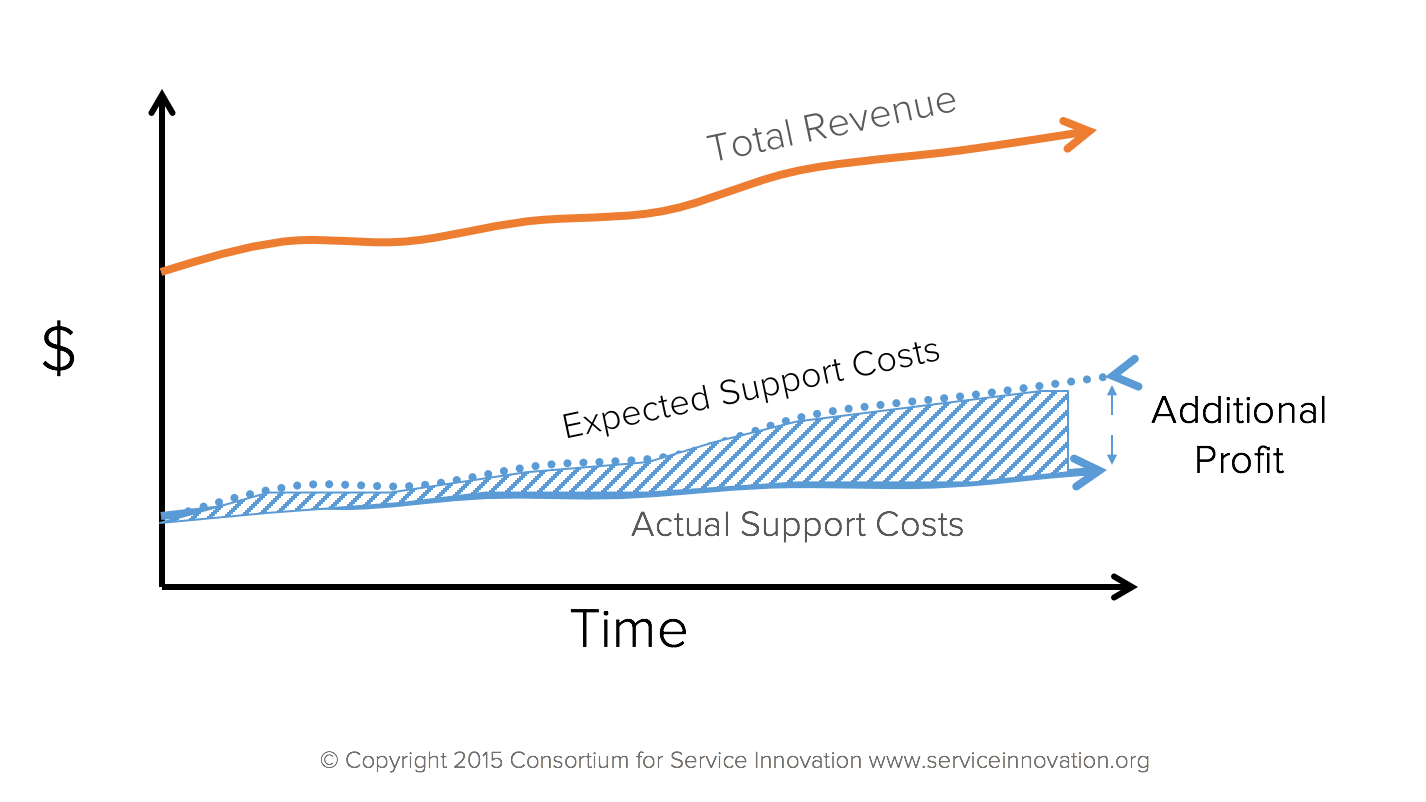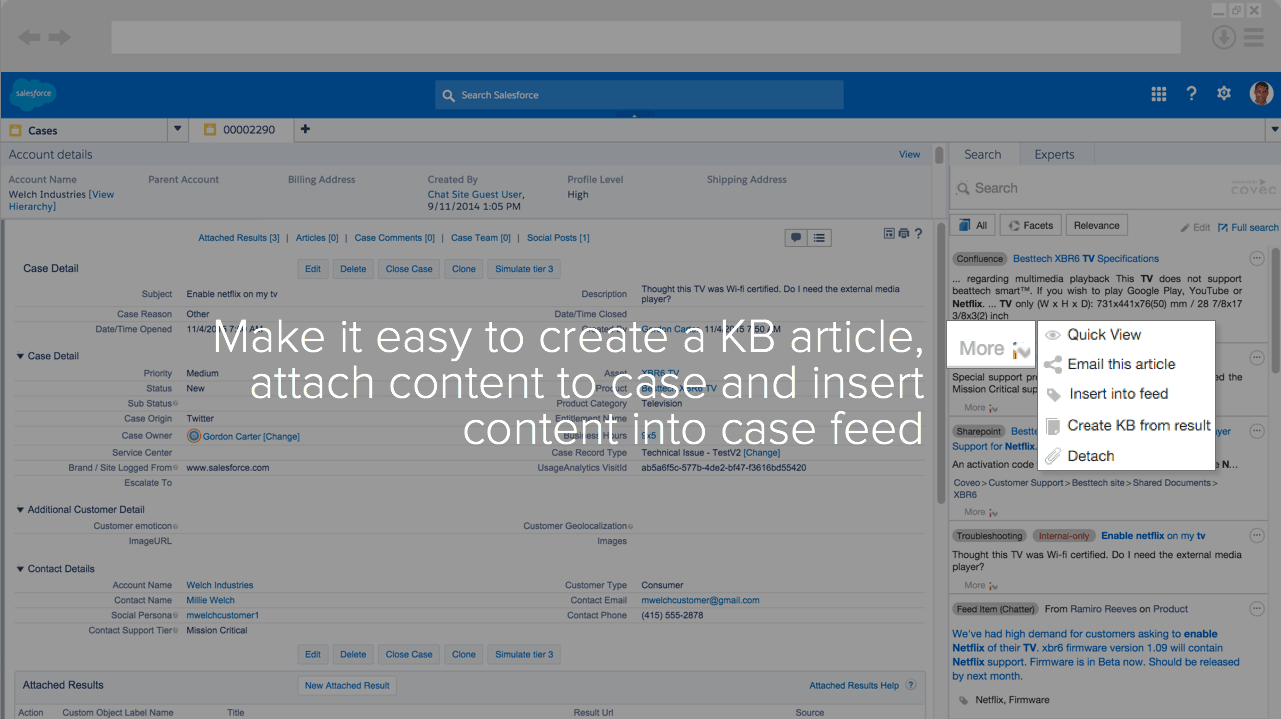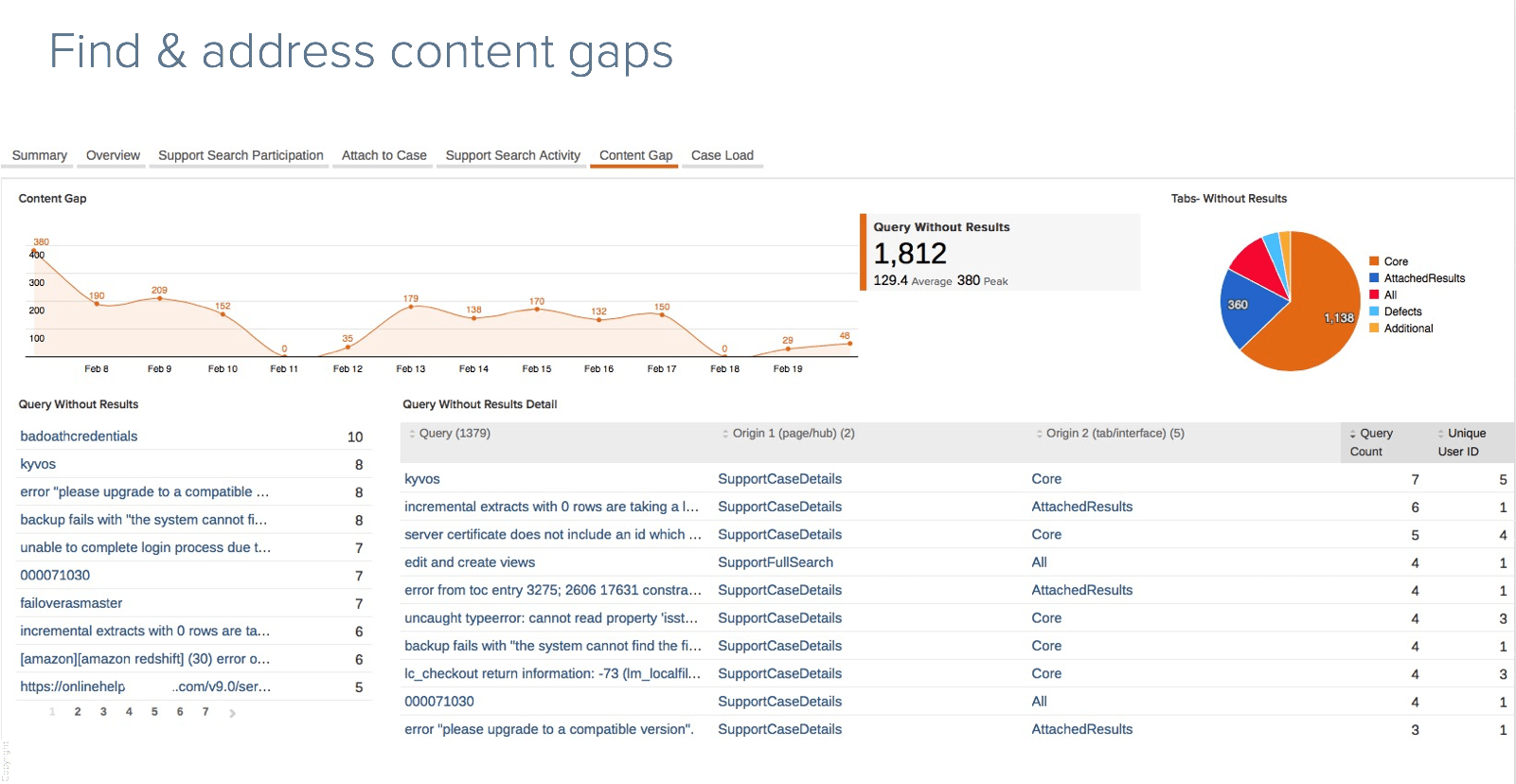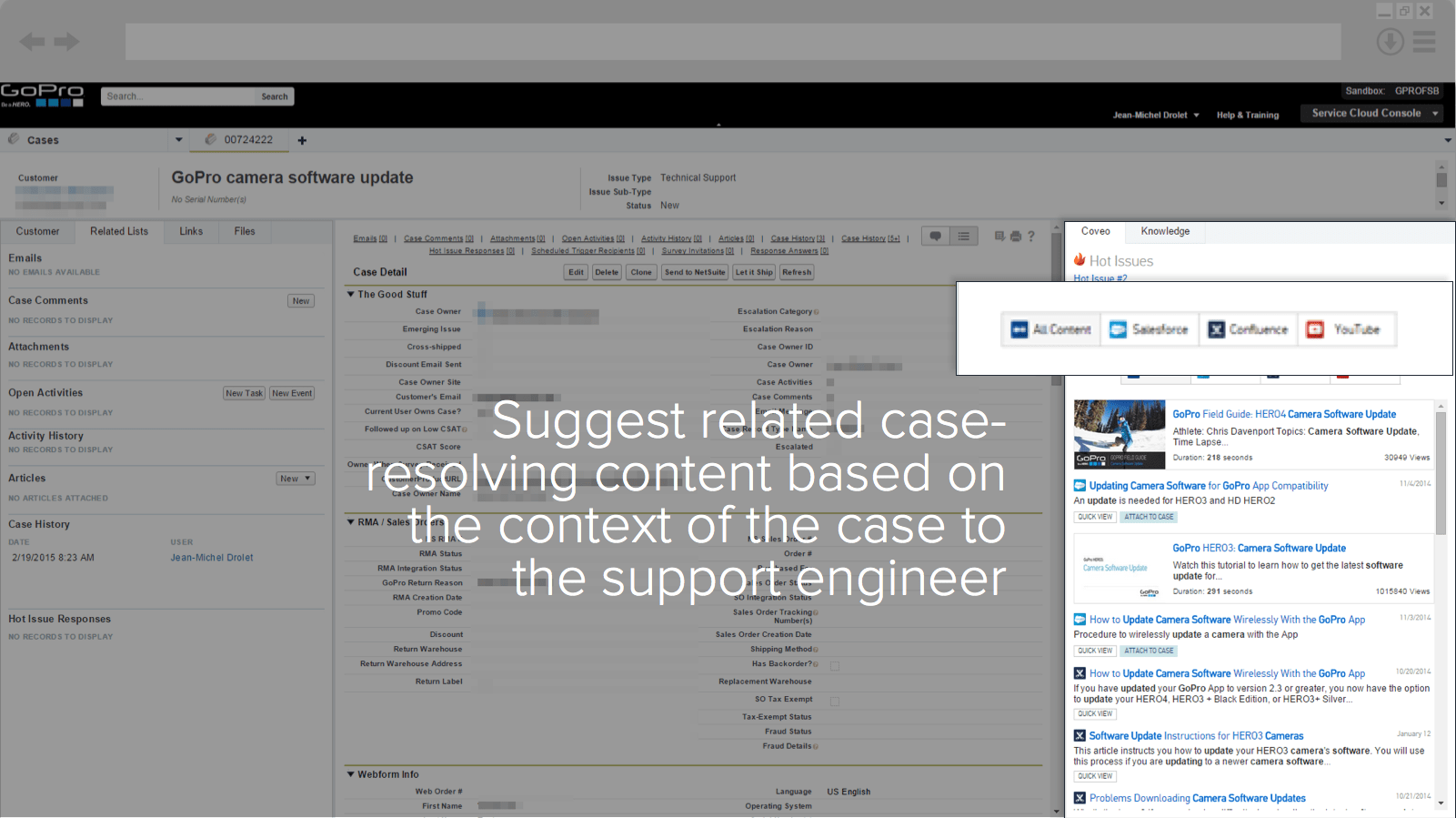Have you ever stopped to think about the the value of your organization’s collective knowledge? If your customers and support engineers can’t access the right content (knowledge articles, documentation, videos, case history) they need, when they need it, the value of that content drops to zero. That’s why search is a key component of a Knowledge Centered Service (KCS) strategy as it allows people to find and evolve knowledge in their flow of case resolution. And KCS has been proven to lower agent turnover because agents are empowered to see the case from creation to resolution – creating a sense of ownership and empowerment that tiered support couldn’t deliver.

In fact, companies that use AI-powered search as part of their KCS programs are seeing changes in their ratio of support-cost to revenue by:
- Solving cases faster – 50-60% improved time to resolution and 50% increase in first call resolution.
- Upskilling employees – 70% faster time to proficiency, 20-45% higher employee retention and 20-40% improvement in employee satisfaction.
- Self-service success – 25-66% improvements in customer self-help success.
By securely delivering answers and recommendations from across your growing enterprise information ecosystem, AI-powered search enables successful and scalable customer service, and supports the improvement of key KCS metrics.
So how does this tie back into the KCS methodology? Here are three ways AI-powered search sustains success while supporting the core KCS principles:
KCS Principle: Create content as a by-product of solving problems
Challenge: One of the key principles of KCS is to embed the knowledge processes in the flow of work. Support engineers need to be able to capture information related to an incident and create knowledge when the information is “fresh.”
Solution: With AI-powered search from Coveo, it is easy for support engineers to do that by creating knowledge articles on-the-fly based on content surfaced by Coveo. It also allows them to attach case-resolving content surfaced by Coveo to cases for faster resolution.

KCS Principle: Evolve content based on demand and usage
Challenge: Understand which content sources are most used by your customers and support engineers, and where they struggle to find answers.
Solution: In-depth analytics from AI-powered search help you understand how knowledge is used to achieve support outcomes. The analytics include the ability to identify content relevance, usage and content gaps, an A/B testing dashboard to compare relevancy of updates to content, and a KCS dashboard that identifies key performance indicators such as Most Popular Clicked Sources, Popular Sources Used for Case Resolution, and more. This helps you focus on the content that is being used or that people are looking for, and not waste time editing and perfecting content that never gets read.

KCS Principle: Develop a knowledge base of collective experience to-date
Challenge: Support engineers need the ability to access your company’s collective knowledge so they can build upon it.
Solution: With Coveo intelligent search, support engineers are automatically presented with knowledge and experts relevant to each support case from both your knowledge base and your ‘virtual knowledgebase.’ Your virtual knowledge base may include content from systems like Jira, SharePoint, Jive, Lithium, customer communities, web sites and more. Making all the potentially case-resolving content available to customers and support engineers expedites case resolution and increases self-service success.

To learn more about the fundamentals of Knowledge Centered Services v6 and how to make your company’s knowledge work for you, watch our three-part learning series.


